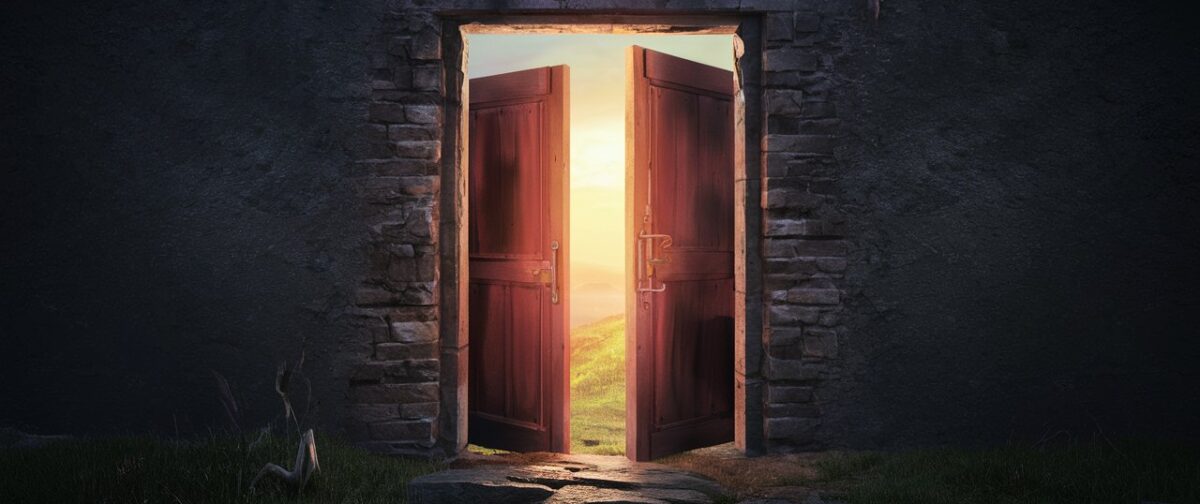He had a long day at work, and he drove home exhausted, finally free to let his mind unwind. He looked out into the suburban expanse before him, full of businesses, parks with kids playing, and a few uncultivated fields. That’s where he first saw it. It was a skinny, pale figure, maybe six and a half feet tall, in a field about 50 yards away. It seemed to just stand there looking towards him. What a strange scarecrow he thought? He felt momentarily gripped by its wilting look making him think about how life slowly erodes us like the slow erosion of hillsides over centuries. Then his mind moved on to other things.
He felt weird when he saw it again during his drive a few days later. This time it was in the small woods next to someone’s suburban property, only 20 yards away. At this distance, he could get a better look at it. Like before, it was skinny, and pale, and he could not tell its gender. It just stared at him. Its expression was like that of curiosity that had slowly wilted away into a tired indifference. How did it get here? This was easily a fifteen minute drive from the last place.
He would frequently see it on his drives home from work, sometimes multiple times. He sensed that it was always there, but he only really noticed it when his mind was tired, bored, or otherwise wandering. He wasn’t sure why his mind would drift towards the figure. All he knew was that when he was busy, he didn’t think about or see it. But when he took a break, out there in the grass or by a tree somewhere, it was, staring right back at him with its expressionless face. Just thinking about it made him feel exhausted.
He didn’t tell his friends or family about it for fear that they would think he was crazy. Deep down, he couldn’t shake this fear that he was going crazy himself, and he assumed if he told others, they would write him off as such. He even felt too ashamed to think about it and would do all he could to remove it from his mind.
One Saturday, he saw it all the time. He tried to fill his day with activities like chores, striking conversations with random strangers he met, all in the hope that he could distract himself from knowing that the figure was there with him.
That night, when he went to bed, he couldn’t stop thinking about it. He glanced out the window and saw it there in the backyard staring up at him, a stone’s throw away. He slammed the curtains shut, and all the other curtains in his house. But that didn’t matter. He couldn’t sleep, knowing it was out there. He finally decided to open his bedroom window and confront it.
“What do you want?” he shouted. No response. He desperately continued, his demands transitioning into begging, “What are you, and what do you want with me? Why do you keep following me?” But it said nothing. It just stared back at him with the same indifferent, lethargic expression it always has.
Furious, he finally decided enough is enough. He went outside to attack it. He rushed right up to it, but each step he took towards it, it seemed to move away. Floating above the ground, it slid backwards maintaining the same distance of maybe 20 feet (or 6 meters) from him. He chased it down the street in the middle of the night. It could not go through objects, opting to go around cars, poles, and other obstructions with ease, as it continued to stare at him. Finally, he had it trapped in a street with a deadend, but it somehow disappeared behind the fence of a house, where he was unable to follow. He could seem to find it again, forcing him to come back home.
He was never able to elude the figure. As he tried to live his life, some days he saw it only once; others multiple times. He couldn’t avoid thinking about it, whenever he went outside, he wondered whether he would see it in the background somewhere, and whenever he was indoors, he wondered whether it was watching him. Slowly, he became too exhausted to handle many of his daily activities. He stopped wanting to see friends and family, only doing the bare minimum at work. Others told him he looked tired and indifferent, and one day he looked in the mirror only to realize that other than several wrinkles from the stress, his exhausted face looked just like that of the figure.










